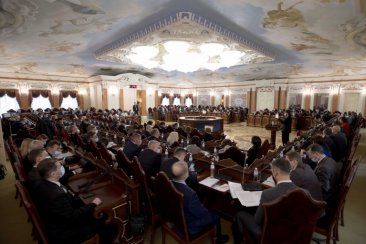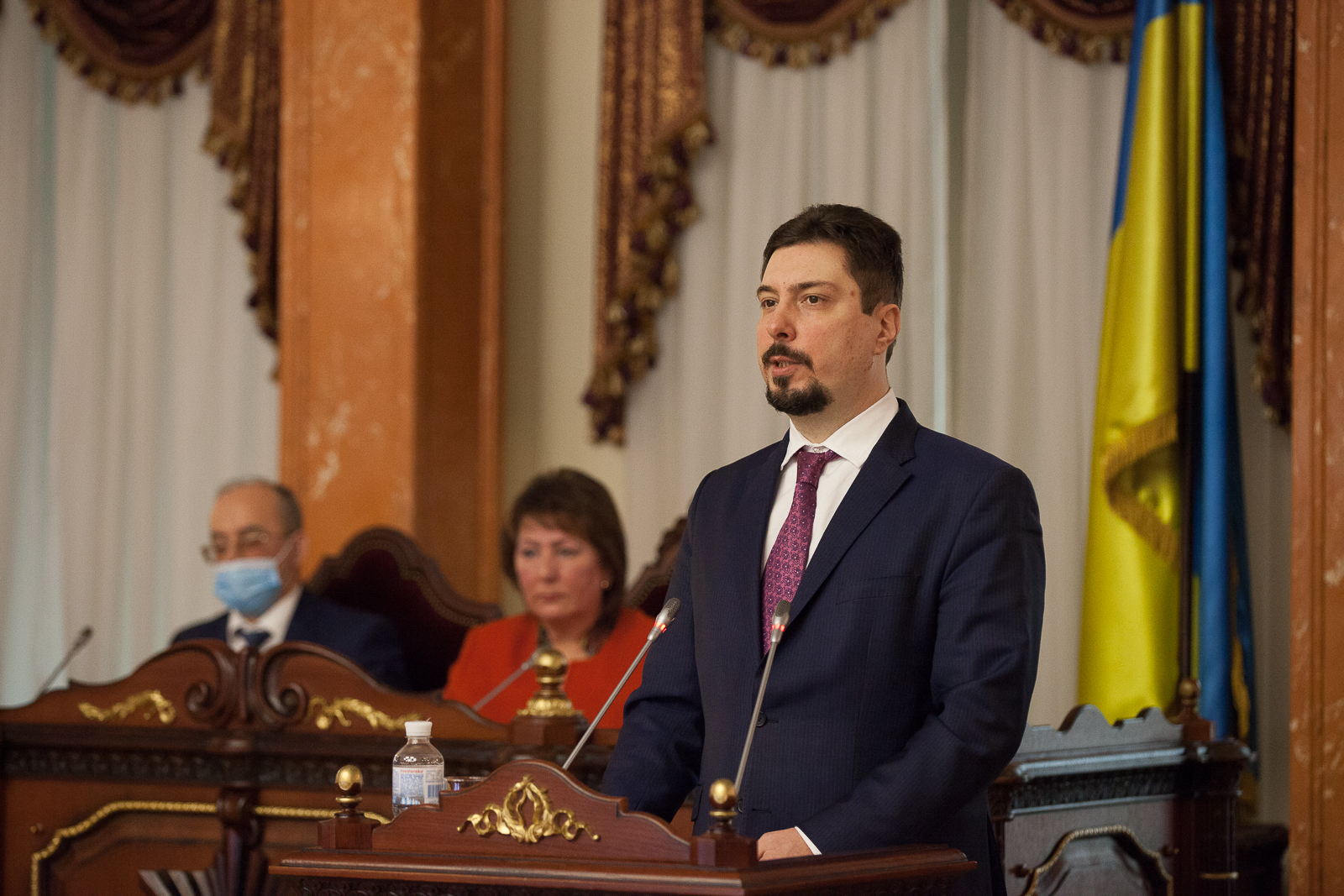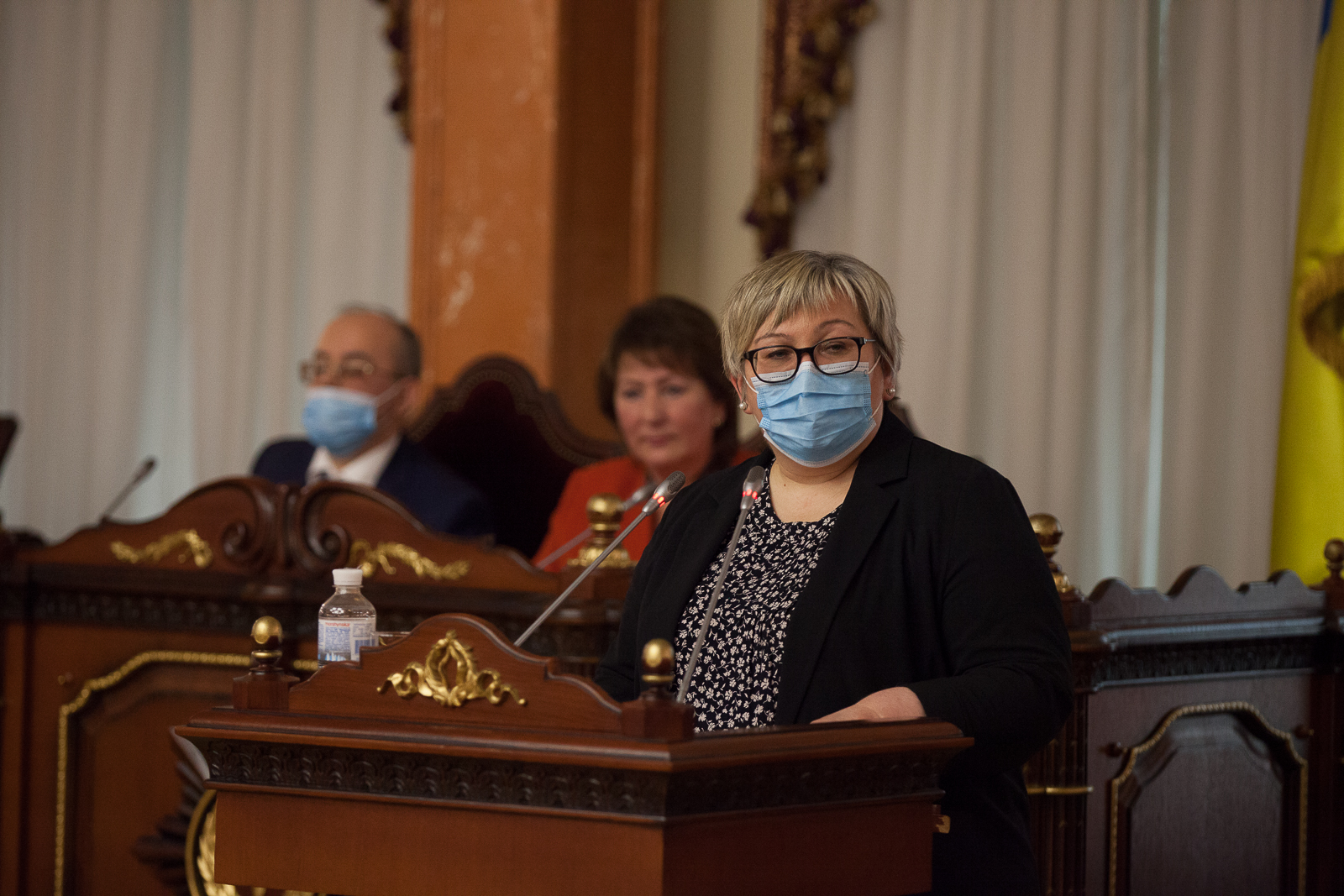Contact center of the Ukrainian Judiciary 044 207-35-46

On 12 February 2021, a Plenum meeting was held in the Supreme Court, where judges discussed the outcomes of the last year’s activity of the Supreme Court.
Describing activity of the Grand Chamber of the Supreme Court, its Secretary Vsevolod Kniaziev informed that there were 909 procedural complaints and cases received in 2020, whereas in 2019 there were 2 383 ones. According to Vsevolod Kniaziev, decline in income is caused by introduction of filters.
Within a year, the Grand Chamber considered 1 019 procedural complaints/cases in all jurisdictions, where 714 – were adjudicated on merits, and 1 830 decisions were ruled in procedural appeals.
Cassation Courts transmitted 234 cases for further proceedings in the Grand Chamber, that is 85% less than that in 2019. The need to move away from the judicial practice of a particular cassation court was the reason for such a transmission in 35 cases (15%), and in 43 cases (19%) - from the opinions of the Grand Chamber. Moreover, 74 cases (32%) contained exceptional legal issues, and 69 cases – issue of determination of dispute’s jurisdiction. A total of 423 cassation complaints were considered by the Grand Chamber of the Supreme Court.
In addition, there were 57 applications for judicial review in exceptional circumstances pending before the Grand Chamber, and 45 complaints - against decisions of the High Council of Justice and 68 procedural appeals in pilot administrative cases.

Furthermore, Vsevolod Kniaziev noted fruitful cooperation of the Grand Chamber with the Scientific and Advisory Board at the Supreme Court. So, last year judges of the Grand Chamber drafted 29 requests to the Board, and received 146 conclusions as a feedback.
It was also noted by the Secretary of the Grand Chamber, that much attention was paid by judges to the out-of-court activity, in particular, to education and teaching, participation in educational and scientific-practical activities, etc.
Information on activity of the staff of the Supreme Court in 2020 was presented by its Chief Olha Bulka. According to her, despite all the challenges, the SC’s staff has been working effectively. As it does every year, the staff provided financial, personnel, logistical, legal, documentary, methodological, analytical, informational and other support to the court; it managed activity in the following areas: information and communication, international and legal cooperation, internal audit, ensured safety and secret activity and followed up the mobilized training of the Supreme Court.
The Staff Chief noted that last year’s plan in part of the court fees incomes (UAH 504.3 million) or 53.5% of the plan, was not achieved, and expenses for financing of the process of liquidation of the Supreme Court of Ukraine, higher specialized courts and state enterprises that provided support to these courts, amounted to more than 90 million UAH.

Moreover, with a view to preventing spread of infectious diseases, the SC’s expenses on the General Fund of the State Budget were reduced by half: by the amount of UAH 110 million in April (under the Law of Ukraine «On Amending the State Budget of Ukraine for 2020») and by UAH 3,2 million in December (under the Order of the Cabinet of Ministers of Ukraine «On redistribution of some expenses of the state budget provided to the main managers of budgetary funds for 2020»).
Meanwhile, in the year 2020, the SC has been realizing projects on construction, reconstruction, capital and renovation. In particular, the right wing of the building of the Civil Cassation Court (Povitroflotskyi avenue, 28) has been renovated: the courtrooms were technically equipped for trial, public areas for the court visitors appeared, courtrooms became absolutely accessible for people with disabilities and with restricted mobility. Thus, a cultural heritage site of 1914-1918 has been restored.
Moreover, part of the IT system has been updated, which will facilitate the e-court introduction.
Activities aimed at prevention of corruption were organized at the high level as well. According to the NACP assessment, Division on Prevention and Detection of Corruption of the SC ranked the 13th place among the 50 most efficient anti-corruption state bodies and local governments, and the 9th place – among the most efficient anti-corruption central government bodies and other national state agencies. According to Olha Bulka, 31 employees of the Supreme Court became judges of the local courts and will then administer justice.